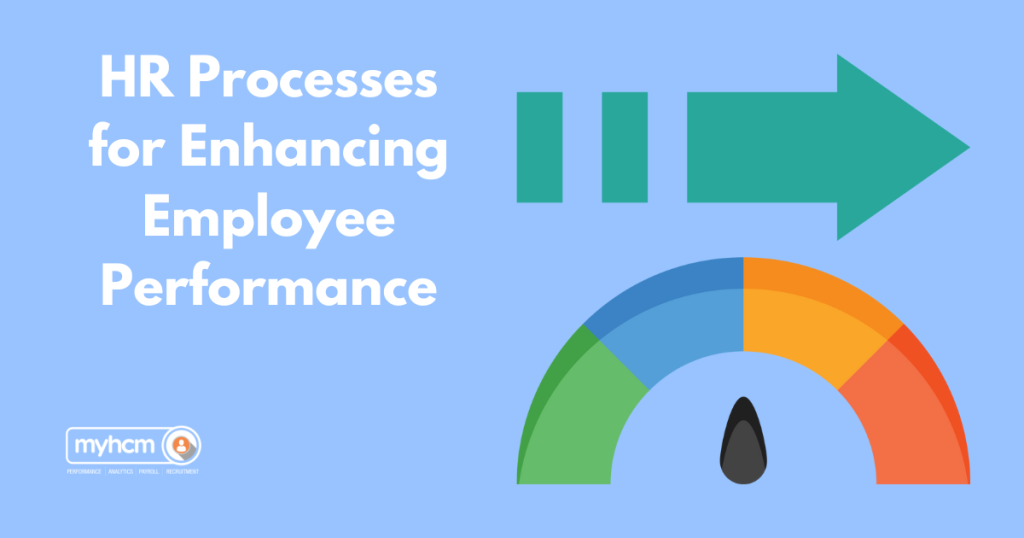Enhancing employee performance is crucial for any organization’s success. HR departments play a vital role in fostering a work environment where employees can excel. Therefore, by implementing key HR processes, companies can ensure that their workforce is aligned with business goals and continuously improving. These processes include recruitment, onboarding, training, performance management, and employee engagement. But how exactly do these HR processes enhance employee performance?
1. Recruitment and Selection
One of the key HR processes for enhancing employee performance is recruitment and selection. Indeed, the process of finding the right talent is the foundation of employee performance. Therefore, HR teams must ensure that job descriptions are clear and aligned with the skills required for the role. Moreover, by using effective selection methods, HR can choose candidates whose skills and experience align with the company’s needs. Hiring the right talent helps in setting up employees for success, ultimately improving overall performance.
2. Onboarding
A well-structured onboarding process is another critical HR process for enhancing employee performance. Onboarding helps new employees adjust to the company culture, understand their role, and meet expectations from day one. HR must ensure that onboarding is more than just paperwork; it should include training sessions, team introductions, and goal-setting meetings. An effective onboarding process can significantly improve a new hire’s productivity and performance by providing the support and resources they need to succeed.
3. Training and Development for Enhancing Employee Performance
Training and development are essential HR processes for enhancing employee performance. Continuous learning ensures that employees stay updated on the latest skills and industry trends. HR departments must offer training programs that cater to different learning styles, whether through workshops, online courses, or mentoring. By providing employees with opportunities to develop new skills, HR can enhance their performance and make them more adaptable to change. Moreover, investing in employee development shows that the company values their growth, which boosts motivation and engagement.
4. Performance Management for Enhancing Employee Performance
Performance management is a key HR process for monitoring and improving employee performance. Furthermore, this process involves setting clear goals, providing feedback, and conducting regular performance reviews. Consequently, HR teams should work closely with managers to create performance metrics that align with business objectives. Additionally, regular feedback and check-ins help employees understand their strengths and areas for improvement. Moreover, a well-structured performance management system fosters accountability and encourages employees to take ownership of their development.
5. Employee Engagement for Enhancing Employee Performance
Employee engagement is one of the most impactful HR processes for enhancing employee performance. Engaged employees are more likely to be productive, motivated, and committed to their work. HR teams must develop engagement strategies that include recognition programs, surveys, and open communication channels. When employees feel valued and heard, they are more likely to go above and beyond in their roles. By fostering a culture of engagement, HR can enhance employee performance and contribute to overall business success.
6. Compensation and Benefits for Enhancing Employee Performance
Another important HR process for enhancing employee performance is the compensation and benefits system. A fair and competitive compensation structure ensures that employees feel adequately rewarded for their efforts. HR teams must regularly review salary structures and benefit packages to remain competitive in the market. Additionally, offering incentives such as bonuses, promotions, or recognition programs can motivate employees to perform at their best. Compensation is not just about salary—it’s also about creating a workplace where employees feel appreciated.
7. Career Development Plans for Enhancing Employee Performance
Career development plans are crucial HR processes for enhancing employee performance. In addition, HR should work with employees to create personalized development plans that outline career goals and steps to achieve them. Moreover, these plans provide employees with a clear roadmap for growth within the company. Finally, by offering opportunities for advancement, HR can motivate employees to work towards their goals, resulting in higher performance levels. A structured career development process also helps in retaining top talent.
8. Conflict Resolution
Conflict resolution is another vital HR process for enhancing employee performance. Workplace conflicts can hinder productivity and negatively affect employee morale. Therefore, HR teams must have strategies in place to mediate conflicts and foster a positive work environment. By addressing issues promptly and fairly, HR can prevent conflicts from escalating and ensure that employees remain focused on their performance.
9. Work-Life Balance Initiatives for Enhancing Employee Performance
Promoting work-life balance is a key HR process for enhancing employee performance. Employees who feel overworked or stressed are less likely to perform at their best. HR departments can introduce flexible working hours, remote work options, and wellness programs to help employees maintain a healthy work-life balance. By prioritizing employee well-being, HR can reduce burnout and improve overall performance.
10. Exit Interviews
Finally, exit interviews are an often-overlooked HR process for enhancing employee performance. When an employee leaves, HR should conduct an exit interview to gather insights on their experience. This feedback can help HR identify areas for improvement in the workplace. By learning from employee experiences, HR can make necessary changes to improve the work environment and enhance the performance of current employees.
Conclusion
HR processes play a pivotal role in boosting employee performance. From recruitment and onboarding to training, performance management, and engagement strategies, each process contributes to creating a high-performing workforce. By focusing on these key HR processes, organizations can improve productivity, employee satisfaction, and long-term success. Ultimately, when HR processes are well-designed and executed, they lead to a thriving and efficient workforce that drives business growth.
